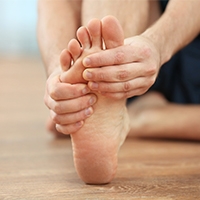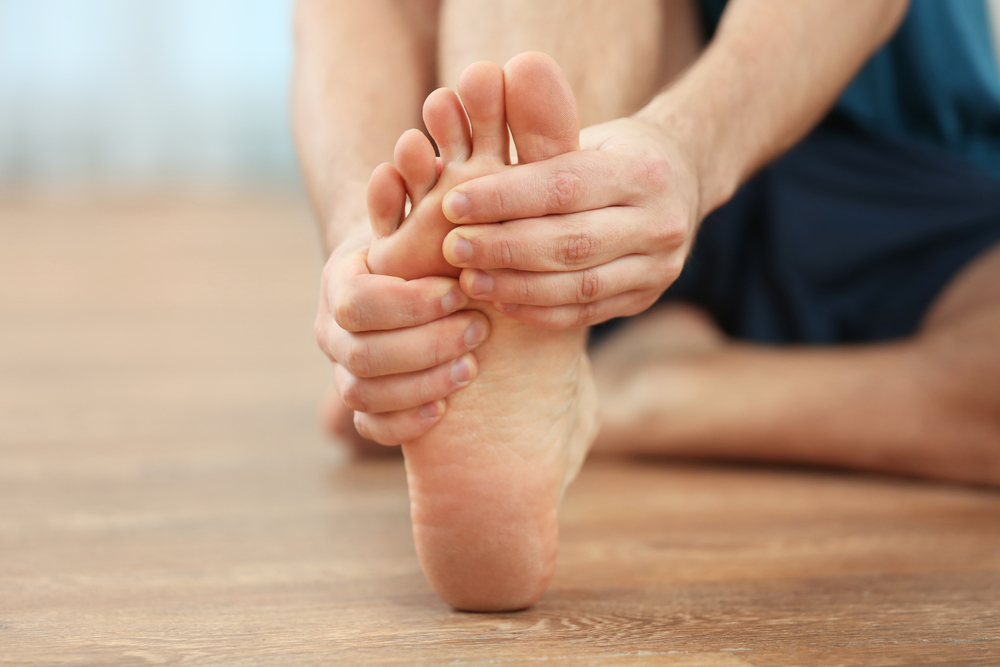
Never get caught “flat footed” again if somebody asks about overpronation. Living with flat feet is not funny if you suffer from the discomfort and pain it can bring, so pardon the ortho humor.
Overpronation occurs when the arch of the foot collapses downward and inward. This condition is commonly known as flat feet or fallen arches. Another way to understand flat feet is when standing, the entire soles of your feet touch the floor.
Some people live with flat feet all their lives never experiencing any symptoms. Others with flat feet suffer discomfort and varying levels of pain along with a propensity for injuries.
Let’s look at why this happens and how flat feet affects our body alignment.
The Problem With Overpronation

Some pronation is normal, whereas overpronation is an excessive movement inward toward the arch. How your foot touches the ground can affect the body as a whole. It can disrupt natural alignment and increase the level of impact with each step we take.
A person with flat feet may suffer pain in the hips, the knees and back all due to the uneven weight distribution. Poor posture is another consequence.
The posterior tendon located on the inside of the leg connects the muscles in the calf to the bones in the feet. Flat feet or overpronation make it more difficult to provide adequate support. Consequently, it may become painful to walk or run for a long period of time.
Certain problems may develop from overpronation including: stress fractures in the foot or lower leg, chronic back pain, achilles tendonitis, and inflammation of the ligament on the outside of the knee. These issues are especially true for athletes.
Causes Of Flat Feet
Many people with flat feet inherited it from their family. Babies are born with flat feet until their arches develop as they grow, and some people never develop arches.
You can also get flat feet later in life from the following situations:
- Damaged or torn tendons
- Dislocated bones
- Pregnancy
- Rheumatoid arthritis
- Certain nerve conditions
- Aging
- Simple wear and tear
- Obesity
- Diabetes
Treatments For Flat Feet In Albany, NY
There are some simple treatments anyone with flat feet can do at home to relieve pain.
Choose shoes with proper support, add orthotics to your shoes, and begin exercises to strengthen your muscles and arches. All these changes should help to lessen any discomfort.
If you suffer with chronic pain from flat feet, make an appointment with one of our foot and ankle specialists.
